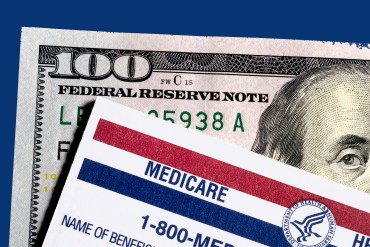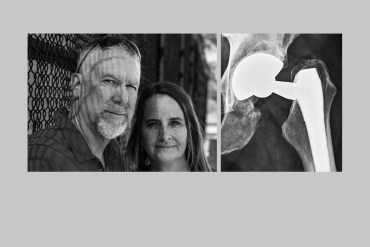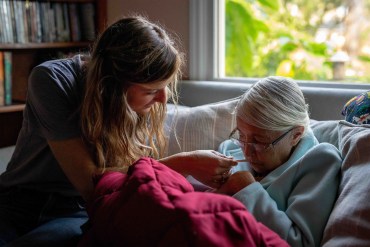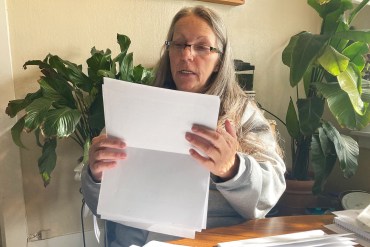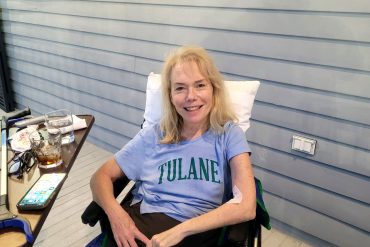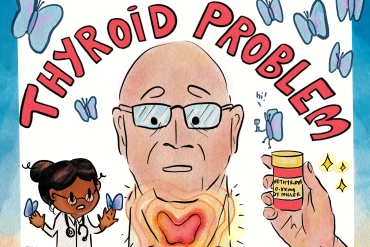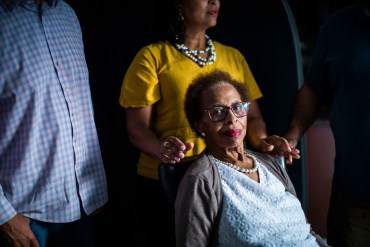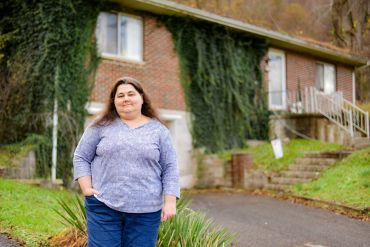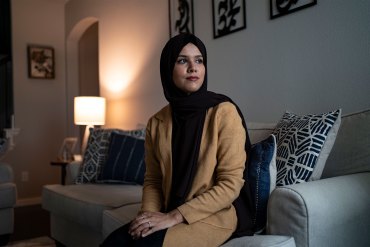Dodging the Medicare Enrollment Deadline Can Be Costly
As open enrollment ends, many people are tuning out. They could wind up with a surprise next year: higher costs and less access to health care providers.
Candidates Clashed But Avoided Talk of Abortion at 4th GOP Primary Debate
Obamacare had its moment, but not until the faceoff’s final minutes. Front-runner Donald Trump again was not on the debate stage, leaving the other Republican presidential hopefuls to slug it out to break through and gain voters’ attention.
Grassroots College Networks Distribute Emergency Contraceptives on Campus
Peer-to-peer efforts can meet a clear need among students whose colleges may not make sexual health products accessible or affordable.
Patients Expected Profemur Artificial Hips to Last. Then They Snapped in Half.
The FDA and the manufacturer were alerted to Profemur titanium hips breaking inside U.S. patients as of 2005. It took 15 years to recall the devices. Many fractures could have been avoided.
Desperate Families Search for Affordable Home Care
Facing a severe shortage of aides and high costs, people trying to keep aging loved ones at home often cobble together a patchwork of family and friends to help.
Explosive DeSantis-Newsom Debate Reflects Nation’s Culture Wars
The two governors exchanged heated verbal barbs when they faced off in a wide-ranging debate that covered various health-related topics, from abortion to gun violence.
‘Forever Chemicals’ Found in Freshwater Fish, Yet Most States Don’t Warn Residents
At least 17 states have issued PFAS-related fish consumption advisories, KFF Health News found. But with no federal guidance, what is considered safe to eat varies significantly among states, most of which provide no regulation.
Uncle Sam Wants You … to Help Stop Insurers’ Bogus Medicare Advantage Sales Tactics
The Biden administration wants to crack down on deceptive or misleading Medicare Advantage and drug plan sales tactics. It’s counting on beneficiaries to help catch offenders.
GOP Presidential Hopefuls Use Trump’s Covid Record to Court Vaccine Skeptics
Candidates see former President Donald Trump’s embrace of his administration’s covid-19 vaccine policies as an opportunity to gain ground. So far, their efforts haven’t found traction.
Medicaid ‘Unwinding’ Makes Other Public Assistance Harder to Get
The bottleneck caused by states’ reevaluation of Medicaid enrollees has swept up low-income families that rely on other safety-net services.
‘Forever Chemicals’ in Thousands of Private Wells Near Military Sites, Study Finds
New research finds that private wells near more than 82% of select military sites were contaminated with PFAS chemicals.
Coping with disability — and the cost of coping with disability — is an enormously important issue for older adults. Nora Super, an expert on aging, shares her personal story.
Many Autoimmune Disease Patients Struggle With Diagnosis, Costs, Inattentive Care
Despite the prevalence of autoimmune conditions, like the thyroid disease Hashimoto’s, sometimes finding help can prove frustrating as well as expensive. There are often no definitive diagnostic tests, so patients may rack up big bills as they search for confirmation of their condition and for treatment options.
How the Thyroid Gland Mystifies Doctors and Patients
This illustrated report has been adapted from a KFF Health News article, “Many Autoimmune Disease Patients Struggle With Diagnosis, Costs, Inattentive Care” by Andy Miller, with artwork by Oona Tempest.
Health Care Is Front and Center as DeSantis and Newsom Go Mano a Mano
Florida’s Republican Gov. Ron DeSantis and California’s Democratic Gov. Gavin Newsom will square off in a first-of-its-kind debate on Nov. 30. KFF Health News compared the political rivals’ health care positions, showing how their policies have helped — or hindered — the health of their states’ residents.
La atención de salud, en el centro del debate entre DeSantis y Newsom
El candidato presidencial republicano Ron DeSantis y el gobernador demócrata Gavin Newsom —rivales políticos y representantes de la América roja y azul— se enfrentarán en un debate sin precedentes el 30 de noviembre en Georgia.
What Would a DeSantis Presidency Look Like for Health Care?
Ron DeSantis’ record as Florida governor provides some clues to how he would change the health care landscape if elected president. In his five years as governor, DeSantis has promoted stricter abortion rules and emphasized individual freedom over the benefits of public health.
Why Long-Term Care Insurance Falls Short for So Many
The private insurance market has proved wildly inadequate in providing financial security for millions of older Americans, in part by underestimating how many policyholders would use their coverage.
Lost in the Mix of Medicaid ‘Unwinding’: Kentucky Cut Off Her Health Care Over a Clerical Error
The state canceled Beverly Likens’ coverage — days before surgery — without considering other ways she qualified for Medicaid, which experts say violated federal regulations.
Out for Blood? For Routine Lab Work, the Hospital Billed Her $2,400
Convenient as it may be, beware of getting your blood drawn at a hospital. The cost could be much higher than at an independent lab, and your insurance might not cover it all.




